Halal Food is Good for Everyone: A Live Web Chat
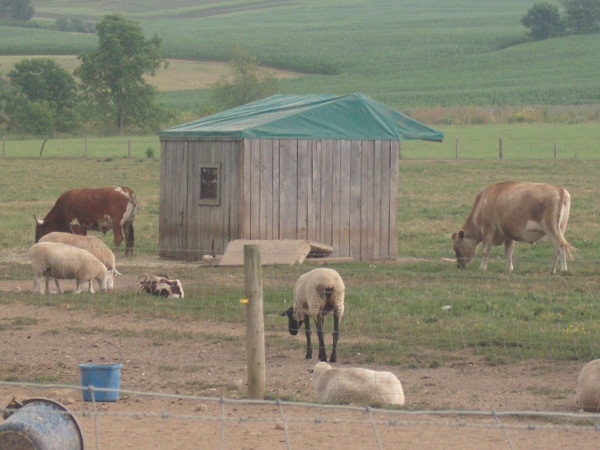
I hope you’ll join me for something quite exciting- my first ever web chat, today at 2pm CST on the blog, Muslim Voices. You can go directly to the site link and join in on the conversation. Ask your questions, give your feedback or just follow the conversation until you feel ready to comment.
I’ll be expanding on the topic of why halal food isn’t just for Muslims, but can be enjoyed by everyone and anyone. I’ll explain what halal means in the context of food, including the life cycle of animals from farm to table within Islamic dietary guidelines.

Here is the article that sparked the conversation, previously published on the Muslim Voices and IQRA blogs and in Halal Connect magazine:
Within the Muslim community, halal is used to describe what is permissible both in food and in actions. We typically associate halal with food, as do many non-Muslims. For purposes of this article, we explore why halal food, specifically meat and poultry, is good for everyone.
I grew up devouring literature with information on eating right and living healthy. When I became a Muslim nearly ten years ago, I was excited to learn about the guidelines set forth in the Qur’an as it relates to what a Muslim should and should not eat. In the process, I realized that I was fortunate enough to develop health-conscious eating habits early on in life that morphed into actions related to food consumption in accordance with Islam. It was quickly obvious to me that the two went hand in hand.
As a food writer and blogger, I keep up with the latest news and trends on the U.S. and international food scene on a daily basis. Unfortunately, there are more and more instances in which food is contaminated and people sickened from preventable issues related to food safety and sanitation in both the agricultural and manufacturing sectors. Also unfortunate is the rising number of preventable diseases related to over-consumption.
Alhamdullilah, there is a growing movement in the U.S. to revolutionize how and what we eat. First Lady Michelle Obama, celebrity chefs like Jamie Oliver, and well-known food writers such as Michael Pollan and Alice Waters are heading up this movement through books, documentaries and lectures across the country.
Because of this push to educate the masses, many people are not only reading labels but demanding to know the source of their food. They want to know what the animals are eating and how they are living, the kind of air they are breathing and what, if anything is being injected into their bodies. They are visiting farms, talking to farmers, insisting on organic products, or at least those that are all natural and not sprayed or injected with harmful pesticides, toxins or artificial growth hormones.
How does halal food fit into this parameter?
Halal encompasses more than just meat, or even the type of meat eaten, although it is the most discussed type of product consumed. For an animal to go from farm to table as halal food, it must have lived a pure life from the very beginning, finishing a cycle of life that is permissible in accordance with Islamic standards. It must have eaten well, been treated well, and been sacrificed well. It may sound good in theory, but what does this all mean?
The Life of the Animal
The kind treatment and the feed of an animal during its life is important. It should be not be abused, mistreated or caused any pain. It should not be confined to an area where it cannot move or walk normally or get fresh air. It should be fed clean water and food that is appropriate and absolutely never fed another animal or products that contain the by-products of other animals.
The Sacrifice of the Animal
As an animal should be treated well during its life, it should also be treated well at the time it is sacrificed for us. The slaughter should never be done in the presence of other animals and the animal should be made comfortable as it is positioned for the sacrifice. The act of the sacrifice should be done with a sharp object, so as to accelerate the process and reduce the pain suffered by the animal as much as possible. i Mercy for animals (as well as humans, of course) is a key component of the character of a Muslim.
Afterwords, the blood should be completely drained from the animal. It is the blood that carries toxins, germs and bacteria and when left inside the body of the animal, could potentially make people sick. At the very least, it could make the cooked meat quite tough. An amazing result of cooking and consuming halal meat is a healthy meat in which the resulting texture is tender and the meat delicious. Some people say they can “taste the difference”.
Treating One’s Body Well is a Good Thing
On the flip side of halal is the haram (impermissible). The most commonly known haram consumables are alcohol and pork (and their by-products), both of which are the cause of numerous health issues, backed by volumes of scientific data. Although these two products themselves could constitute their own essays, for purposes of this article they are only briefly mentioned here. It is worthy to mention that whatever can kill us (i.e. poison) is not permissible to Muslims, either. What can we say of known poisons like toxins and pesticides purposely sprayed on our food?
Instead of seeing the impermissible as a closed door on food choices, one can embrace an entire world of exciting, delicious and a healthy variety of foods. Islam enjoins us to treat our bodies well as it has a right over us and will testify against us on the Day of Judgment for any injustices we may have caused it during our lifetime.
Treating our bodies with wholesome foods free of harmful ingredients: pesticides, toxins, pollutants, filth, etc. is not just a value desired by Muslims, it’s desired by all of humanity. It’s a common need, a common desire and a common right, and that means everyone can benefit from consuming halal foods and avoiding what is not.
Resources
Halal Meat & Poultry Companies
Blossom Pure (Canada)
Halal Food & Cooking Sites
Zabihah.com (restaurant locator)
Important Documentaries about Our Food & Agricultural System
Food, Inc.
Fresh: the Movie
The Future of Food
King Corn: You are What You Eat
Books About the Current State of Food & What You Can Do About It
Pollan, Michael. Botany of Desire
Pollan, Michael. Food Rules: An Eater’s Manual
Waters, Alice. Edible Schoolyard
iNarrated Shaddad bin Aus (RA) Allah’s Messenger (SAW) said, “Anyone of you should sharpen his blad so that the animal may be spared fromteh suffering of the sharpening.” [Reported by Muslim].
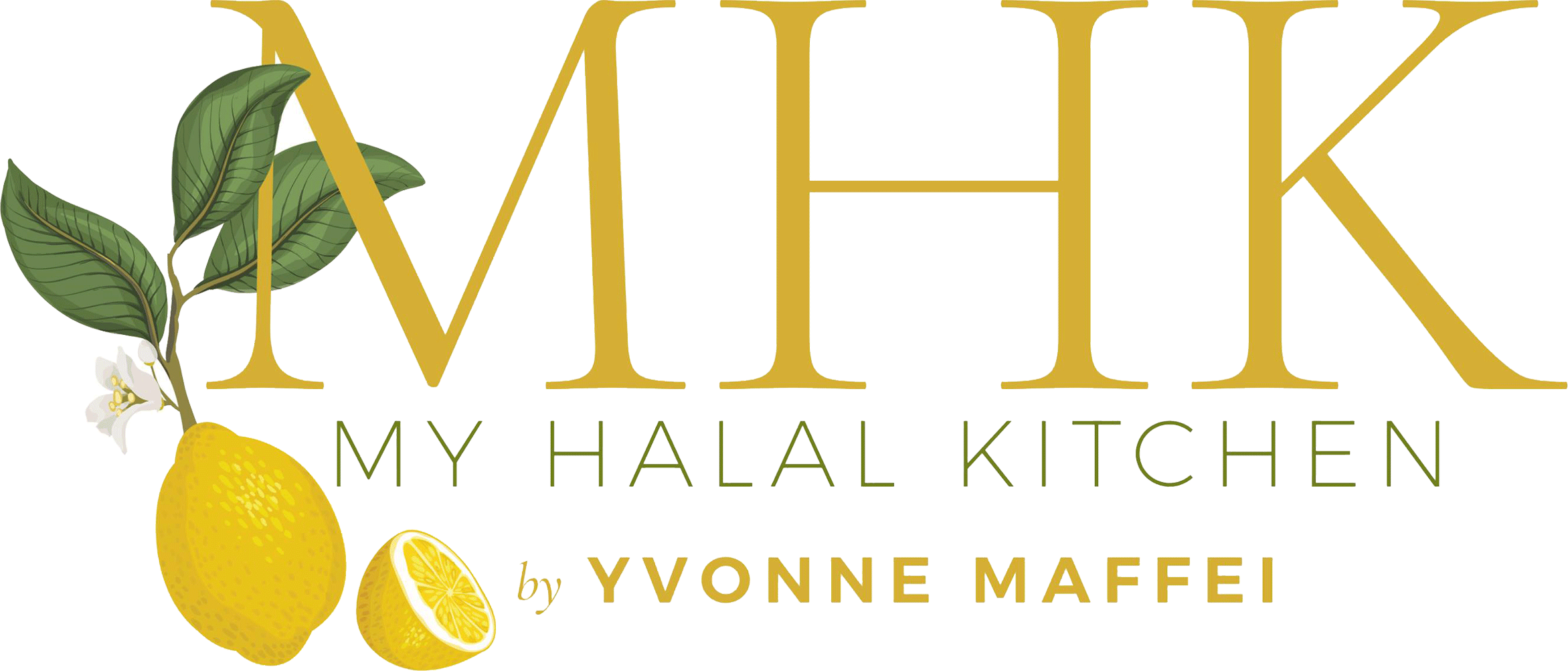

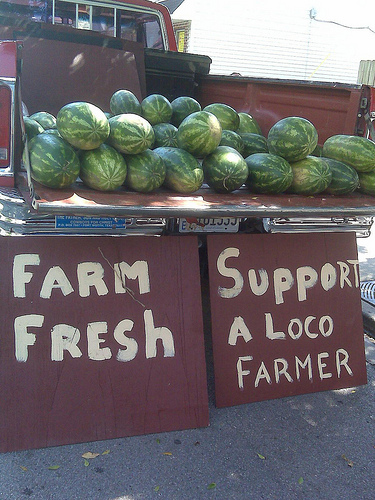
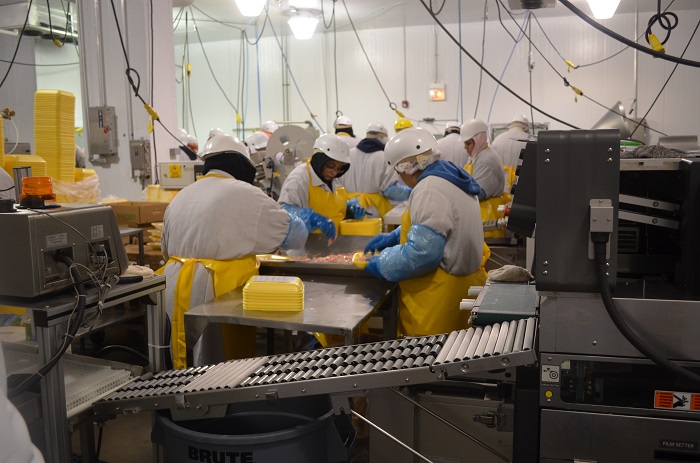
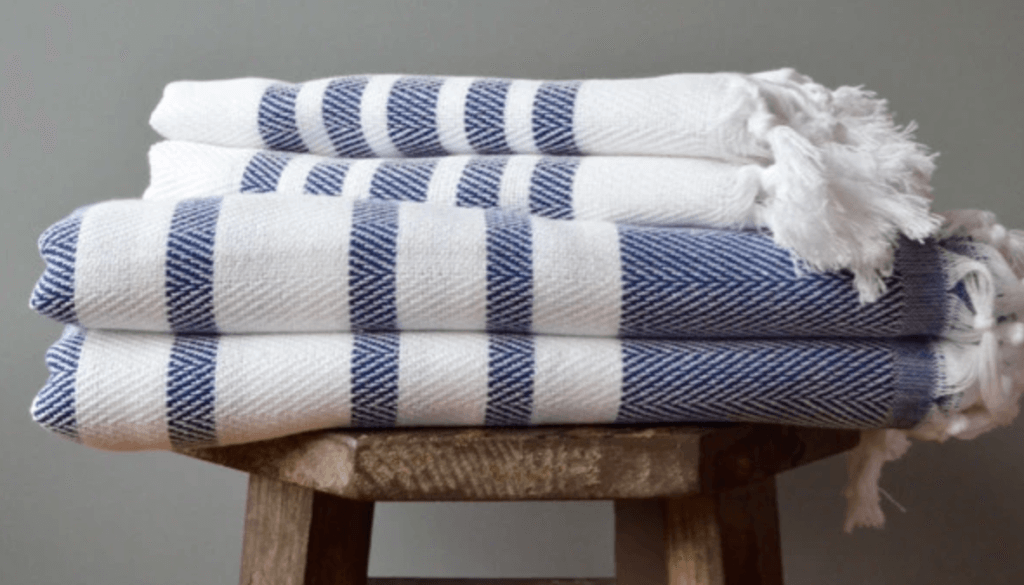
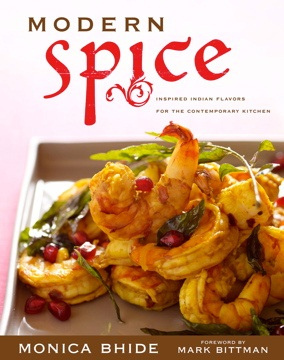


This was an excellent article! Alhamdulillah! You put this all so well and throughout I was thinking I must tell her to see Food, Inc. and Fresh, lol. But I see you’re way ahead of me and in fact you’ve given me a couple of recommendations, thank you.
I am so pleased that you have come out and reminded Muslims of their responsibilities in terms of ‘halal’ meat. I think some of these responsibilities are simply not possible within the modern profit driven, factory farming systems that we have in place these days. For example – just how many of the animals where the meats are labelled halal have really been slaughtered away from the other animals so that those other animals were unaware of what was going on? I find this an amazingly merciful rule for it is recognition of the vast intelligence of animals…something which many humans today still don’t want to admit.
This fact, that we cannot seem to provide real ”halal” despite all our amazing technology raises the question for me – are we meant to be eating so much meat? If we, as Muslims, cannot provide the amount of meant that we are consuming via genuine halal methods, then are we doing the right thing? I think not.
One thing I have considered before is that if we were to lead a more natural life – raising our own animals to eat – we would be eating very little meat in comparison to what the majority of affluent people eat now. Personally I think it’s not healthy or normal and we would be much better off cutting right back on our meat consumption for a a variety of reasons.